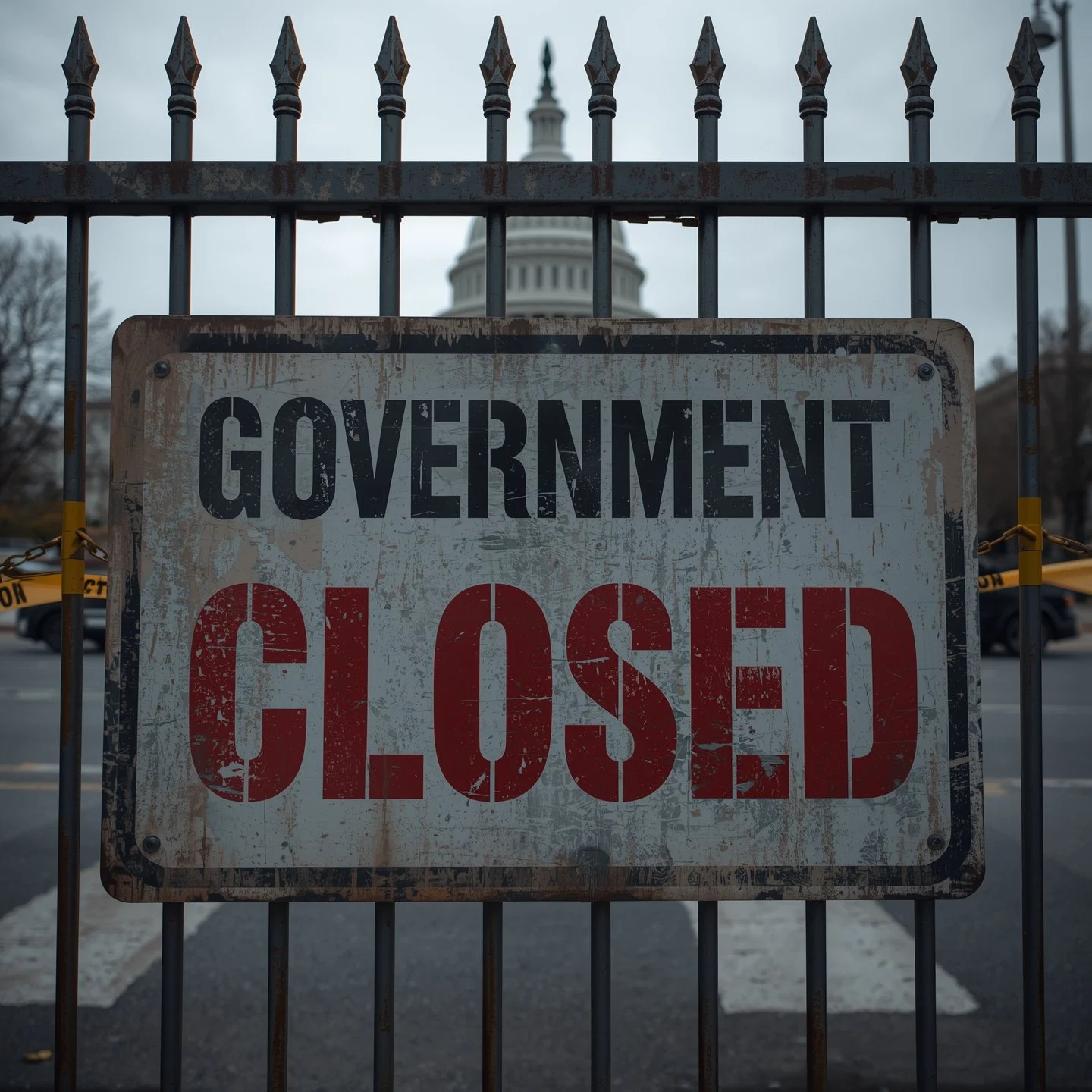A weathered metal sign reading "Government Closed" is attached to a black iron fence, with the U.S. Capitol building blurred in the background.
Shutdowns don't just stop paychecks. They chip away at people.
If you've never lived through one, it's easy to think it's just bureaucracy. Temporary. Inconvenient.
It's not.
I've been through shutdowns before, but this one feels different.
Maybe it's because I've seen too many people I care about wake up to RIF notices after decades of public service.
People I worked alongside. People who trained me. People who gave everything to this government only to be told they are no longer essential. My former colleagues at USPTO are among them. Some of the most dedicated professionals I've ever known. Their careers ended not with ceremony or dignity, but with silence.
Cruel actions from a supposed model employer.
That word. Non-essential. It doesn't just hit your paycheck. It hits your purpose.
It is an emotional body blow.
And for disabled federal employees, it hits even harder.
Shutdowns pause more than systems. They stall accommodation requests. They cut off the very processes that allow us to do our jobs in the first place. Timelines get frozen. Cases fall through the cracks. And no one knows when things will pick back up.
And the timing? It's National Disability Employment Awareness Month.
We can post about inclusion all day, but the reality is that thousands of disabled public servants are currently locked out. Some temporarily. Some permanently. And there is no guarantee that access, or dignity, is coming back.
Meanwhile, our own administration is publicly mocking us.
The official The White House YouTube account posted a montage of clips from The Office, meant to portray federal employees as lazy and useless. At the exact moment we're being furloughed, RIF'd, and dragged through bureaucratic uncertainty, the Executive Branch is laughing at us.
And if that weren't enough, we've been given official "guidance" on what to include in our out-of-office replies. Language that leans partisan. Messaging that doesn't feel neutral or respectful but instead feels like we're being used as pawns in a larger political game. WIRED reports U.S. Department of Education unilaterally changed employee’s out of office to reflect that language.
Our own government is mocking us and demeaning the work we do.
Canine Companions® Lovey knows something is off. She's been glued to me since this started. Watching more closely. Laying a little closer. Matching her breathing to mine.
Because this isn't just about politics or policy.
It's about people.
To every civil servant who is furloughed, fired, or just trying to hold it together: You are not disposable. And you deserved better than this.
To everyone else: please be kind to your federal friends. We are not okay. We are doing our best to survive.


